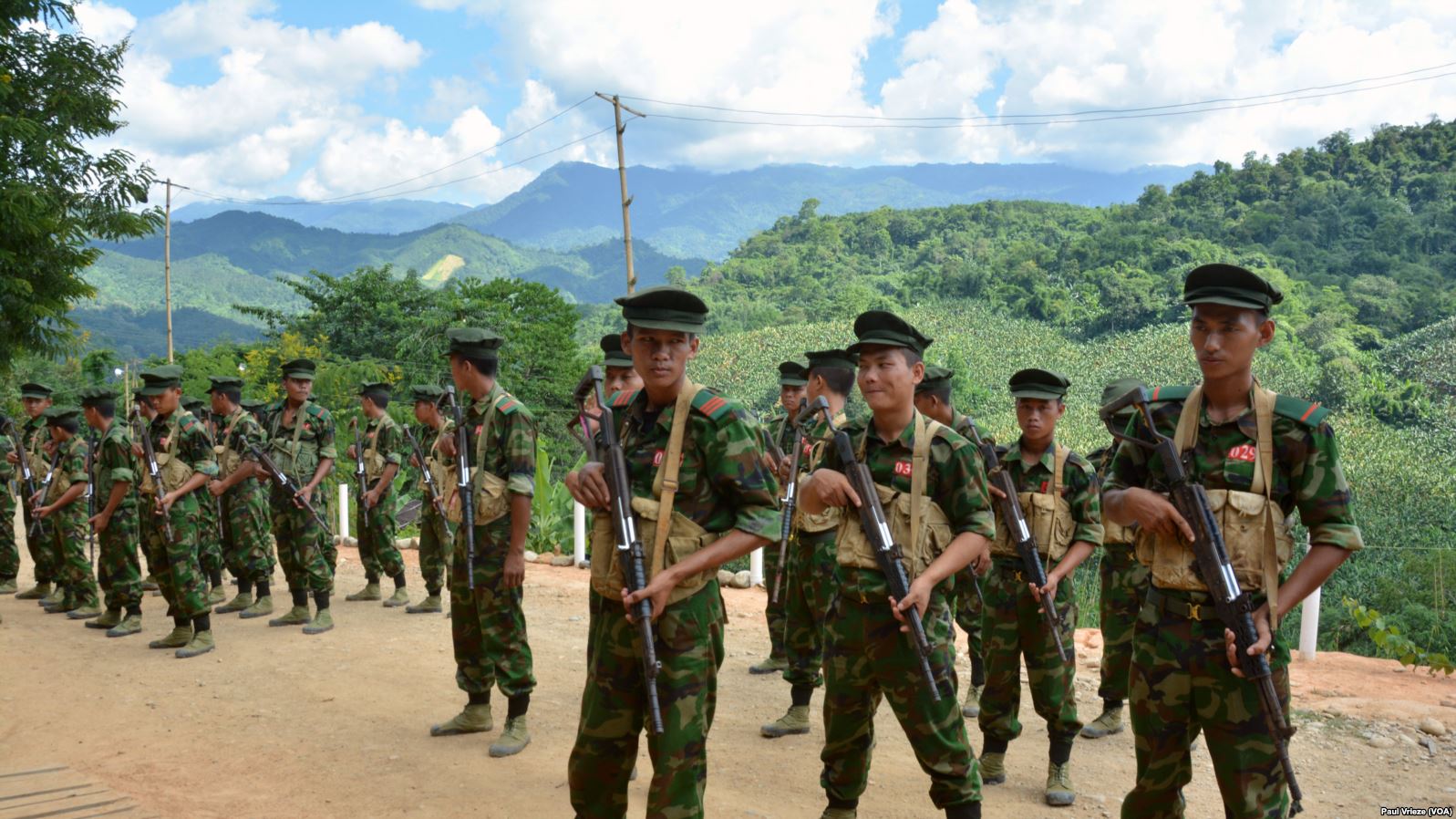
The leadership of Burma’s democratic resistance on March 31 issued a statement declaring the country’s 2008 constitution void and putting forward an interim replacement charter—a major political challenge to the ruling military junta. From hiding, the Committee Representing Pyidaungsu Hluttaw (CRPH, a reference to the lower house of Burma’s suspended parliament) released the text of the interim Federal Democracy Charter to social media. Significantly, it adopts a federal rather than centralized model of government, which has long been a demand of the ethnic rebel armies that control much of the country’s north and east. Recent days have seen renewed fighting between the military and rebel armies in Kayin and Kachin states. (See map) Repression of pro-democracy protesters in Burma’s cities has now claimed at least 530 lives. (AP, The Diplomat)
The Karen National Union (KNU) in Kayin state and Kachin Independence Army (KIA) in Kachin have both announced that they stand with the pro-democratic resistance, and started to launch attacks on military outposts near their territory. For the KNU, this means breaking the Nationwide Ceasefire Agreement (NCA) it entered into with the military in 2015.
Weeks earlier, the Brotherhood Alliance of three rebel armies not party to the NCA issued their own statement in support of the democratic resistance and expressing their willingness to collaborate with other civil and armed groups against the military regime. These are the Arakan Army in Rakhine state; the Myanmar National Democratic Alliance Army (MNDAA), representing the Kokang people in Shan state; and the Ta’ang National Liberation Army (TNLA), also in Shan state. (The Irrawady)
In an evident bid to divide the Brotherhood Alliance from the democratic resistance, the military regime has removed the Arakan Army from its list of “terrorist” groups, calling the move a step toward the junta’s vision of building “nationwide eternal peace.” (Al Jazeera)
There may be unfortunate points of commonality between the Arakan Army and the junta. While fighting for their own autonomy, the Arakan Army is bitterly hostile to the persecuted Rohingya Muslim people with whom they share Rakhine state.
See our last post on the struggle in Burma.
See also our feature, Ethnic Minorities and Burma’s Democratic Resistance
Photo of Kachin Independence Army fighters via WikiMedia Commons





Suu Kyi and four others charged under state secrets law
Burma’s ousted State Counselor Aung San Suu Kyi is among several people to have been charged under the country’s colonial-era Official Secrets Act, one of her lawyers said April 2. Suu Kyi was charged in a Yangon court on March 25, alongside detained Australian economic adviser Sean Turnell and three of her cabinet ministers. All five figures were charged under the Official Secrets Act, 1923, a relic from Buma’s days as a British colony, enacted to criminalize the sharing of almost any kind of information held by the government that could be prejudicial to the interests and safety of the State. Activist groups have long been calling for the law to be repealed due to concerns that it could be used “to hide corruption and wrongdoing.” (Jurist)
Protesters massacred in Burma —again
More than 80 people were killed by security forces in repression on a protest in the city of Bago (Hanthawaddy) on April 11. The military is reported to have taken away the bodies of those killed, and the true number of deaths may never be accurately established. More than 600 people have been killed since the February military coup. (BBC News)
Aung San Suu Kyi facing new criminal charge
Aung San Suu Kyi, the overthrown State Counselor of Burma, was charged with a sixth criminal offense on April 12. She is charged with violating the country’s Natural Disaster Management Law, in relation to her handling of the COVID-19 pandemic. (Jurist, EFE)